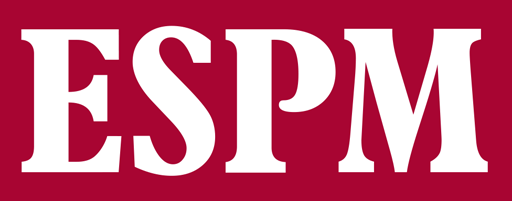ESPM in Brazil (Porto Alegre, Rio de Janeiro, and São Paulo campuses) is seeking applications for Visiting Faculty, for academic short term – 2 weeks (for the first or second semester) both at the research level and undergraduate levels. At ESPM, the first academic semester takes place between February and June, and the second semester begins in August and ends in December of each year.
The interested researchers should send a work proposal* covering two weeks. The proposal must be addressed to a Graduate Program. If the program is hosted in São Paulo, your proposal must attend at least one lecture in Rio de Janeiro and Porto Alegre for undergraduate students. If the program is hosted in Rio de Janeiro, your proposal must attend at least one lecture in São Paulo and Porto Alegre for undergraduate students. The application deadline for the 2020 first semester is October 30th, and the second semester is March 30th, 2020.
About ESPM:
ESPM is a private, not-for-profit university. It positions itself as a medium-sized university, focused on business, marketing, and communication. It presents an applied teaching profile. It is recognized as the best marketing university in Brazil. It has campuses in São Paulo, Rio de Janeiro and Porto Alegre. It offers undergraduate programs, research graduate programs and professional graduate programs in several careers: Advertising, Business Administration, Journalism, Design, Social Sciences, Movies, and Multimedia, International Relations, and Information Systems and Data Science. In general, every program will develop a mix of soft skills considered critical for the 21st-century work and professional demands and technical skills (hard skills) demanded by each career.
Short description of research activities: ESPM boasts a robust program of both basic and applied research across disciplines. Doctoral and research-focused master’s degree programs are recognized by CAPES (a Brazilian Federal Agency), and they are intended to train researchers and future professors who can successfully develop teaching and research activities in national or international higher education institutions.
- The activities include studies and practices related to each field of study: https://pesquisa.espm.br/
Information about specific programs:
- Ph.D. Program: https://www.espm.br/pos-graduacao/doutorado/
- Master Research Program: https://www.espm.br/pos-graduacao/mestrado/
- ESPM Academic Journals: https://international.espm.br/espm-news/academic-journals/
Both Doctoral and Master’s students at ESPM develop the ability to conduct original research in their fields. These programs are continually evolving at ESPM.
About the position of Visiting Faculty:
As visiting faculty, you will:
- Have the opportunity to develop teaching skills in an innovative and dynamic university, nationally recognized as a reference in active learning methodologies;
- Develop a research network with our professors and our partners which will be beneficial for your research work in Brazil and Latin America;
- ESPM will provide round-trip tickets for selected researchers, a payment of $ 2.100,00 (corresponding a daily value of $ 150.00) and the airfare connecting the SP, POA and RJ units.
- The visiting researcher is expected to deliver a lecture in Rio de Janeiro (RJ) and Porto Alegre(POA) when he/she comes to the Graduate Research Program in Business Administration (PPGA) or the Graduate Research Program in Communication (PPGCOM); if the professor applies to the Graduate Research Program in Creative Economy Management (MPGEC) he/she must offer a lecture for POA and SP.
Please note that the payment to participants must cover their expenses including housing (around ESPM campuses there are nearby hotels to stay and also good options on sites like airbnb.com), meals, visa insurance costs, and international health insurance and others.
How to apply:
To apply for one of the Visiting Faculty positions, candidates shall submit the following documentation with at least three months of anticipation to the beginning of the term to which they are applying:
- A Cover Letter (no more than 1 Letter/A4 page), including a short research and teaching philosophy statement, and briefly describing your motivation to apply for this position and the field to which you are applying; if it’s possible to identify if you are linked to a research group in the country of origin.
- Your resume along with scanned proof of your academic degrees;
- Two letters of recommendation or an ESPM Professor recommendation. It’s mandatory that, at least, one of the letters is from your Institution;
- Digital copy of the passport;
- A statement signed stating that you agree to participate in the proposed activity plan and the conditions proposed in the announcement;
- Your Orcid identification; and
- *Work Proposal:
The work proposal should include: a workshop on your area of expertise or a lecture within the Researchers Program (Master and/or PhDs), participation in the activities of the research groups, a lecture or activity with undergraduate or postgraduate students, a paper development workshop, attend staff presentations on their research and provide feedback for publication. The proposal should indicate some research activity that may result in a joint publication with professors of the Graduate Programs. All courses necessarily have to be taught in English or Spanish.
The proposal can also contemplate the possibility of a course for Executive Programs (MBAs, specialization courses in Graduate Program).
It’s strongly recommended that the visiting professor’s proposal include the possibility of preparing a cooperative research project to submit to an international or local research support agency (s).
- Areas of interest:
- Communication Studies;
- Media Studies;
- Media Literacy;
- Cultural Studies;
- Audiences and Consumer Culture;
- Communication and Consumption;
- Marketing and Consumer Behavior;
- Innovation and Strategy in International Management;
- Creative economy and development;
- Cultural policies;
- Creative industries strategic management;
- Creative industries marketing;
- Design thinking and innovation;
- Creative entrepreneurship;
- Interaction Design;
- Experience design
Visa information:
According to the PORTAL CONSULAR – Itamaraty, applicants[1] to the 2-week program may apply for a visitor’s visa since you are receiving a grant aid during the period you are in Brazil participating in the academic activities at ESPM.
http://www.portalconsular.itamaraty.gov.br/vistos-para-viajar-ao-brasil#onde
So, all applicants must be aware that Visa information may change according to the Brazilian Consulate in each country. So the information provided here is intended to help professors with the primary information about VISA in Brazil; however, it is the responsibility of each candidate to verify the updated information with the Brazilian consulate in the country of origin.
Visit Visa:
The visit visa will be issued to foreigners traveling to Brazil for staying up to 90 days without purposes of immigration or the exercise of paid activity (daily allowances, artistic paychecks, compensation or other travel expenses are allowed). Visit visas can be granted for those traveling for tourism, business, transit, artistic or sports activities, study, volunteer work, or to attend to conferences, seminars or meetings, among other purposes – provided there is no remuneration in Brazil, and the stay does not exceed 90 days.
Click here to apply for a Brazilian visa (for electronic visas, please refer to the next session).
Electronic Visit Visa (eVisa):
The new system for granting electronic visas is available for nationals of Australia, Canada, the United States, and Japan. Nationals of these countries may apply for a Visit Visa and obtain it remotely, with no need to visit a Consulate, since there is no physical label. The eVisa must be applied for at the VFS Global website (the company which provides the service).
If the application is approved, the applicant will receive an e-mail with the visa copy, his data, visa data, QR Code to confirm the authenticity, and any warnings that may apply.
The holder of the electronic visit visa must present the printed authorization file or its electronic copy to the transport companies at the time of boarding, as well as to the Brazilian immigration authorities upon their entry into Brazil.
Click here to apply for an eVisa.
If applicants need some specific letter from ESPM to apply for a visa, ESPM will be happy to provide it.
Support:
If you need any help to attend this Call, you can send a message to the International Office ([email protected] ) or the Associate Dean of Research and Graduate Studies ([email protected] )
Profa. Dra. Cristina Helena Pinto de Mello
Associate Dean of Research and Graduate Studies
[email protected]
Rua Doutor Álvaro Alvim, 123, Bloco C, Sala 404, Vila Mariana, São Paulo-SP, ZIP 04018-010, Brazil
Phone. 11 5085-4689 | Mobile. 11 97328-5338
[1] Brazil officializes visa-free agreement with the European Union. By agreement, the exemption is valid for ordinary passports and travel up to three months. European Union_27 countries: Austria, Belgium, Bulgaria, Cyprus, Czech Republic, Denmark, Estonia, Finland, France, Germany, Greece, Hungary, Ireland, Italy, Latvia, Lithuania, Luxembourg, Malta, Netherlands, Poland, Portugal, Romania, Slovakia , Slovenia, Spain, Sweden, and the United Kingdom.
Please, see the list:
http://www.portalconsular.itamaraty.gov.br/images/qgrv/QGRV-simples-port-Novo-190617.pdf
By agreement, the exemption is valid for ordinary passports and travel up to three months. However, the text allows the extension of the period as long as negotiated with the authorities of each country. The end of the visa is valid for those traveling on tourism, visiting relatives and attending conferences, meetings, and congresses – except when the person receives public resources for participation. (Remember, the resources received in this Visiting Faculty Program is private, provided by ESPM).
The document also says that the agreement “does not affect” those already negotiated bilaterally between Brazil and a member of the European Union. Governments may suspend the text if they deem it necessary.

